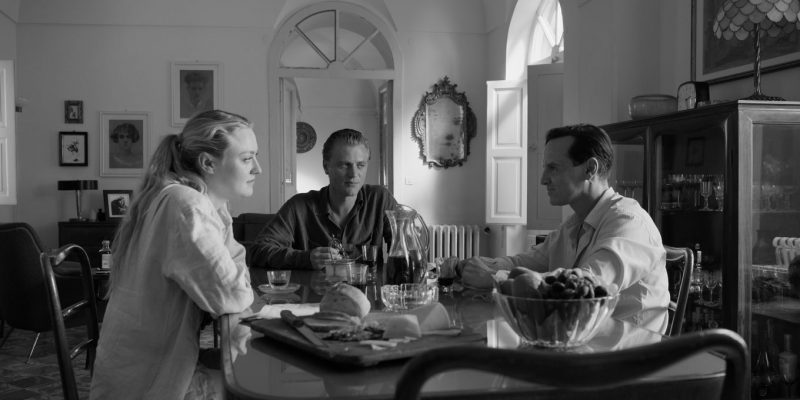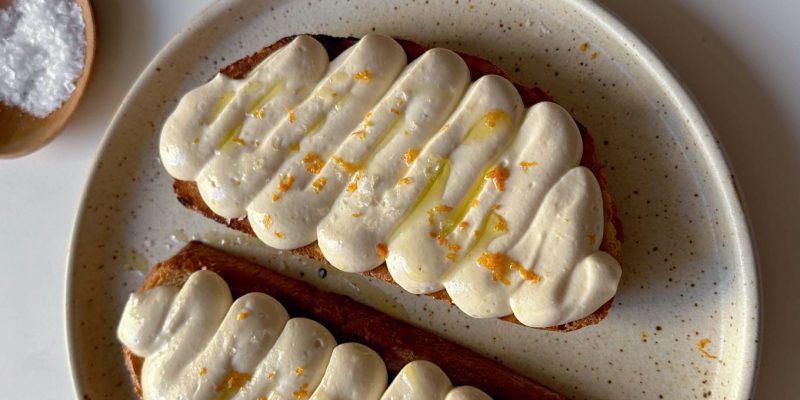Culture
A Q&A on the Start of Motherhood With Joanna Griffiths and Domino Kirke-Badgley
Life After Birth: Portraits of Love and the Beauty of Parenthood, a powerful new book from Knix founder and CEO Joanna Griffiths and Carriage House Birth founder and doula Domino Kirke-Badgley, shows postpartum journeys of mothers everywhere.
by : Camille Cardin-Goyer- Nov 18th, 2021
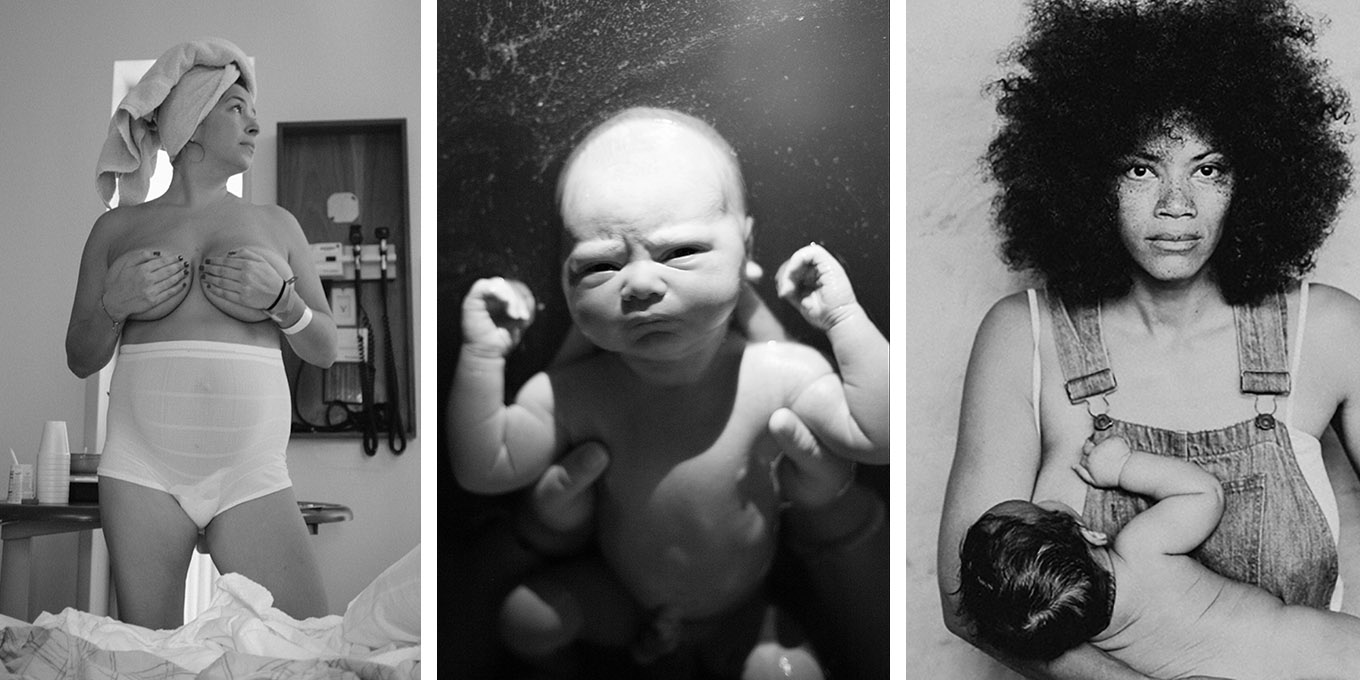
Rebecca Minkoff, Nettie Lile, Neram Nimine
In a world of flawless selfies and perfectly curated baby accounts on Instagram, it’s easy to forget what the real postpartum experience is actually like, but thankfully, entrepreneur Joanna Griffiths and Carriage House Birth co-founder and doula Domino Kirke-Badgley are here to change the narrative. Their new book, Life After Birth: Portraits of Love and the Beauty of Parenthood, shares stories that normalize and honour all postpartum experiences, drawing on the learnings of everyday people and celebrities, the likes of Amy Schumer, Rebecca Minkoff, Ashley Graham, Gabrielle Union-Wade and Eva Longoria. We caught up with the co-authors to discuss the early stages of life, the start of motherhood and get some tips to navigating the postpartum journey.
Domino Kirke-Badgley
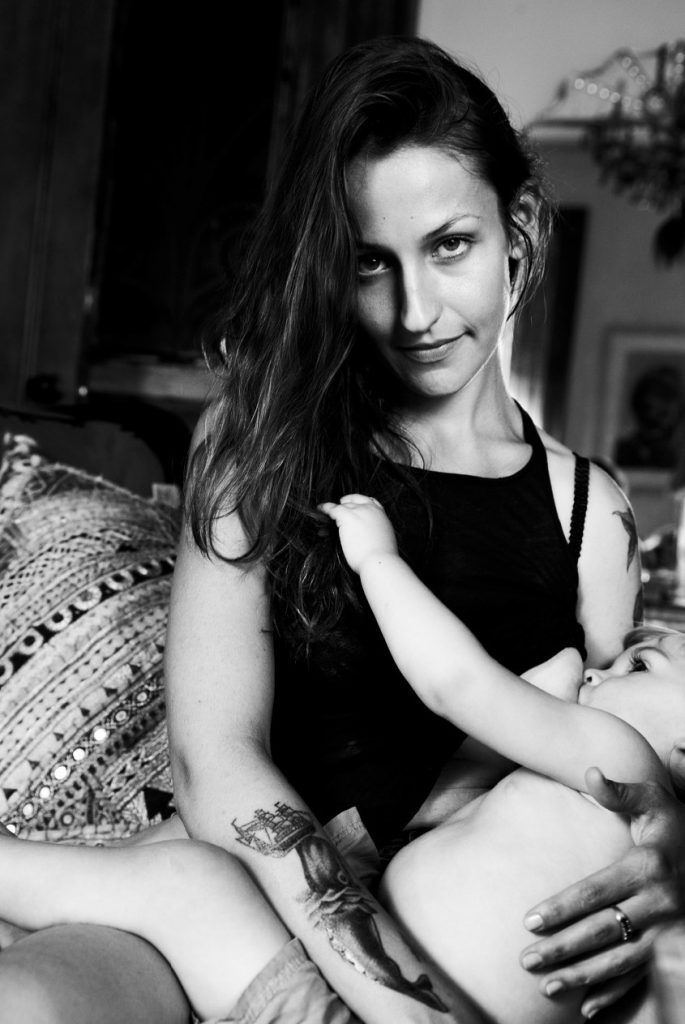 Domino Kirke-Badgley
Domino Kirke-BadgleyJoanna Griffiths
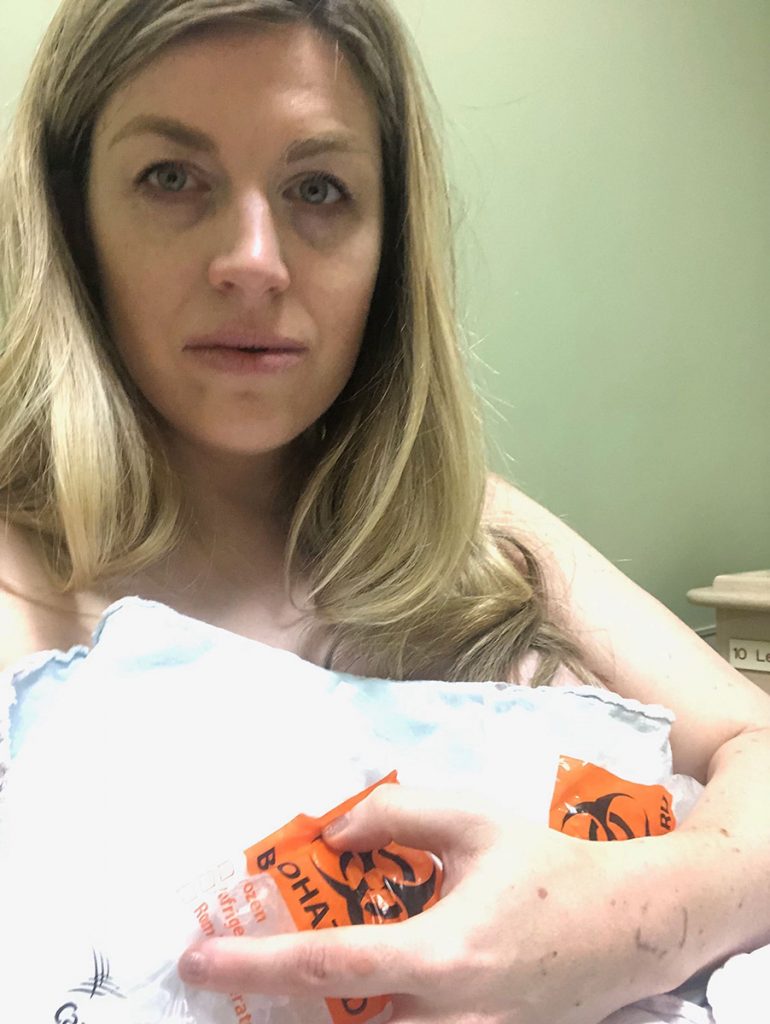 Joanna Griffiths
Joanna GriffithsWhat is society’s current postpartum narrative and where did the idea for Life After Birth come from?
Domino Kirke-Badgley: “The book was born out of a need and desire to be part of the conversation surrounding postpartum and take a closer look at what postpartum actually means. For a really long time, society has considered postpartum to be six to eight weeks after a baby is born and there’s this whole idea about getting back to your old self, getting back to work, back to your body–going backwards, but I think that what is happening in the birth community, and in society in general, is that people are starting to see postpartum as something that is lifelong, instead of a temporary event.
The book’s mission was to help people relax into wherever they are [along the postpartum journey]. We wanted to share these real-life stories so that people would be kinder and gentler toward themselves around postpartum, because it really is forever.”
What’s flawed about the term “bouncing back” from postpartum and how would you rather describe the transformative road that is life after birth?
Joanna Griffiths: “It’s this very belief that we’re expected to return to the way we were before giving birth. There’s a lot of negativity hung up on this notion of bouncing back: it’s rooted in the pressure society puts on women to be perfect and have perfect bodies. We want women to do everything but pretend like nothing happened. I’m going to use a very crude example, but if you think about the notion of having sex, society wants women to have sex, but requires that we have a “tight” vagina. In birth, there’s also this pressure to pretend like nothing happened and it’s associated with the fit body, the tight stomach, the “un-ruined vagina”. But all of this is purely physical and ignores the transformative experience that happens in life after birth. For better or worse, if you have a positive birth experience, it can be empowering–you can feel really strong, but if you don’t have the most positive experience, it can be traumatic and you can carry that for a really long time. There’s so much learning that comes in the life after birth– you’re also born in a new identity.”
Joanna, in a September blog post you wrote “we so quickly forget that in those precious few moments of birth, you’re introduced to someone else entirely new. And it’s not your baby— it’s you.” What do mean by that?
Joanna: “Pregnancy, birth and parenthood is such a transformative experience. It changes you mentally, emotionally and physically and you become a completely new version of yourself. You are starting an entirely fresh chapter in your life, full of the unknown, and it takes time to get used to your new persona. It’s a birth for the baby and a re-birth for you.”
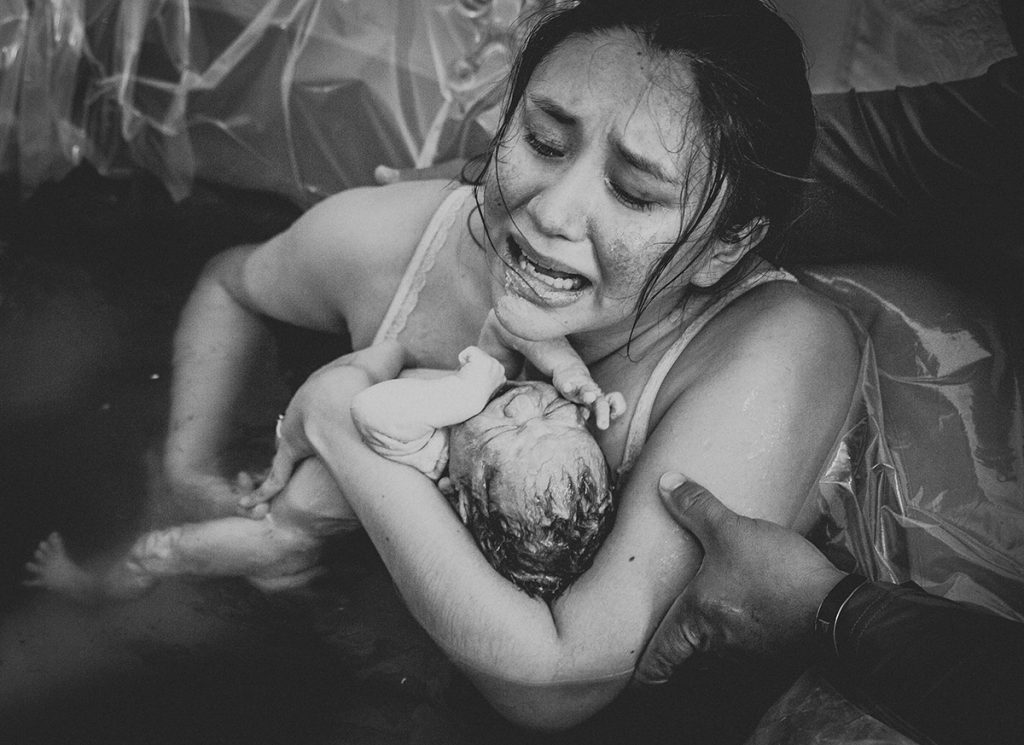 Arelys Hernandez
Arelys HernandezWhat does society have to win in viewing the postpartum experience as a forever one?
Domino: “If society viewed the postpartum space as something that lasts forever, then we would be so much more compassionate. We would have a kind of grace birthing people/women that we certainly don’t have today. Laws would be different. We wouldn’t glorify individualism and busyness. We would be more united and community oriented.”
What role has social media played in this pressure to “bounce back” women are under?
Joanna: “It has definitely reinforced it. It first started with tabloids on which you’d often see celebrities in a bikini with headlines such as “post-baby bod” or “bouncing right back”. Whatever it was, celebrity-driven publications were celebrating people that looked like they hadn’t had kids. But back then, it was up to you to go buy that magazine or not. But now, with social media, images are omnipresent–they’re really hard to avoid. I think social media is slowly shifting to value authenticity, but people still show up in a very tailored version of themselves. I think it can really add to the isolation and pressure for sure.”
What would be your ultimate tip to navigating social media when you’re on the postpartum journey?
Domino: “I tell my clients to get off social media during their third trimester and their immediate postpartum if they can, or to unfollow the accounts that makes them feel worse about themselves. It’s just about scanning yourself emotionally and being really honest about what feels good. Do you feel inspired? Do you feel invigorated? Are you moved? Or are you shaming and criticizing yourself after looking at that person’s profile? That’s something I often recommend to my clients: a social media detox of some sort.”
Joanna: “Being really careful and protective of your mental health is so important in these stages. But I personally found some valuable resources in curated Facebook groups. I really struggled with breastfeeding and I decided that I would exclusively pump with the twins. I didn’t know anyone who was exclusively pumping–you know, eight times a day pumping. I looked up a Facebook group, joined, and really found a community there.
 Adilah Yelton
Adilah YeltonWhy do you think community is so important in life after birth?
Joanna: “No one talks about how isolating it can feel to have someone inside of you for so long and then being separated at birth. Chemical things are happening inside your body that make you feel alone, or isolated. Postpartum depression is a really real thing–everything is so new. You’re always constantly being challenged.”
Domino: “And people today are more siloed than ever before, so the need for community is much more present. During pregnancy, you are accompanied by your baby and your partner if you have one, and then you give birth and there’s this feeling of needing to be surrounded, but not knowing how to ask for it. Community helps ensure that your needs are met and helps you feel worthy of having your needs met.”
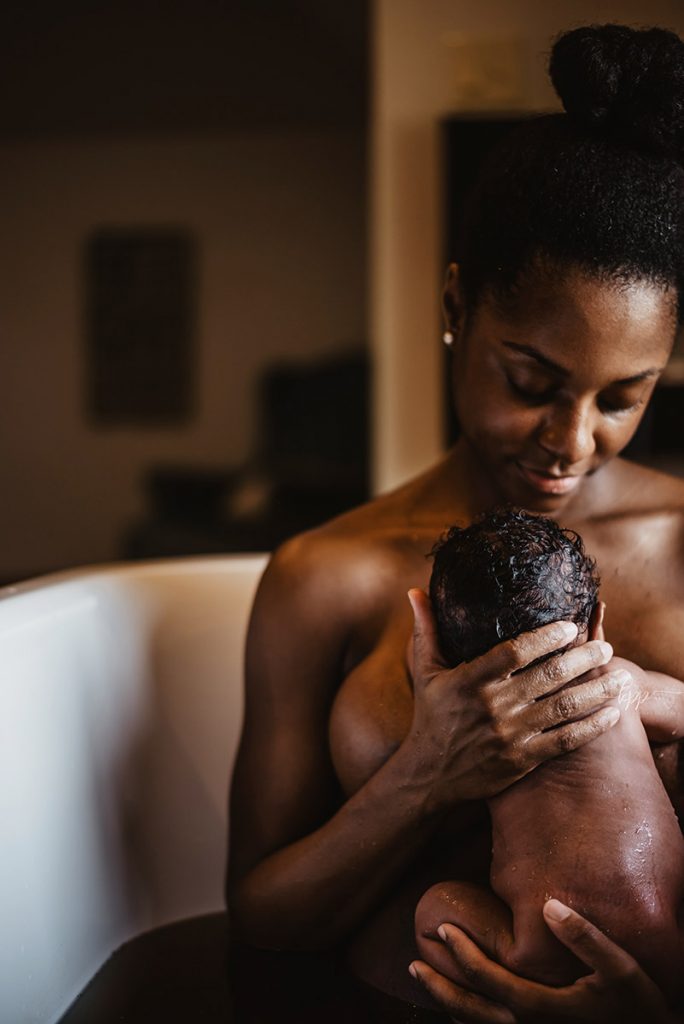 Teiah Lucas
Teiah LucasAs a new mom or a mom-to-be, being able to express your needs is fundamental. Why do you think being vocal about our needs is so underestimated?
Domino: “I think it comes down to being a woman and what society expects from [women]. You should be able to give birth, but you must do it quietly–without any fuss. It’s about not wanting to take up space and that’s ingrained in us culturally and in our society, it is rampant. Even in the throes of labour, I hear women apologizing: “Sorry, but do you think I could get an epidural?”. We all need to be OK with taking up space and getting loud. I have clients who struggle with making sounds in labour and it’s amazing that there’s something in your brain telling you that if you get loud, you’ll get hushed.”
Joanna: “And I think it’s also the narrative we have around being a mother. It’s even harder to advocate for yourself and ask for help when your role is to look after someone who is 100 percent helpless. It’s so easy to forget about yourself, but we’ve all learned that you can only help others if you have enough in your heart and in your cup to give.”
 Mia Matias
Mia MatiasJoanna, you made headlines earlier this year for raising a $40 million funding round while pregnant (this is so awesome!) and disqualifying any investor who commented negatively on your pregnancy. Can you tell us more about it?
Joanna: “Knix has seen immense growth over the past few years so I knew it was the right time to do a round of funding to further scale the business. I was pregnant with my twins at the time, and made the decision that any investor who raised concern about my ability to lead a company as a mom would be disqualified from the round. Our brand mission is rooted in empowering our community to live unapologetically free, so I knew that ultimately, if that is what they felt about me, they would never be able to understand what Knix is trying to accomplish as a brand. It’s astounding the systemic biases female entrepreneurs still have to go through, especially those who choose to have children.”
100 percent of the proceeds that Knix and Carriage House Birth receive from the book will go toward the NOURISH–a postpartum Doula training and scholarship program created in partnership with Knix and the Black Women’s Health Imperative. Why is this important to you?
Domino: “Because of the Black Maternal Mortality rate. We need to support Black birth workers/doulas so they can advocate for black families in their community. It’s absolutely essential to support Black birth workers right now. It’s actually a matter of life and death.”
Joanna: “Creating a space for the voices and stories of postpartum people has been an important part of Knix’s brand storytelling. But the topic of birth and postpartum cannot be discussed without addressing the inequality that exists within the Black community and specifically the rising black maternal mortality rates.
Black birthing families carry the brunt of America’s maternal health crisis. Between 2007-2016, Black women had the highest pregnancy-related mortality rates across all racial/ethnic groups in the U.S. However, studies have shown that support from a Doula and family-centred care can improve chances of healthy birth outcomes and reduce maternal and infant mortality. Doulas play a vital role in protecting the space during birth and postpartum, making sure birthing people are listened to, and are an advocate for respectful maternal care.”
If you had one piece of advice for moms-to-be, something you wish someone had told you, what would it be?
Domino: “Prepare for postpartum, prenatally. No matter what. Have the hard conversations with family and friends about how to support you, about boundaries. I promise, you’ll be glad you did. There’s nothing worse than trying to host or set boundaries when you’re at your capacity.”
Joanna: “Remember that no birthing journey and experience is the same–they are all beautiful. You will have highs and lows that create a transformative experience that leaves you forever changed. Parenthood can be very isolating and it’s easy to feel like you aren’t doing it right. Don’t be afraid to ask for help and to talk about what you may be struggling with. There is a special power when birthing people come together and share and learn from each other’s experiences.”
Newsletter
Join our mailing list for the latest and biggest in fashion trends, beauty, culture and celebrity.
Read Next
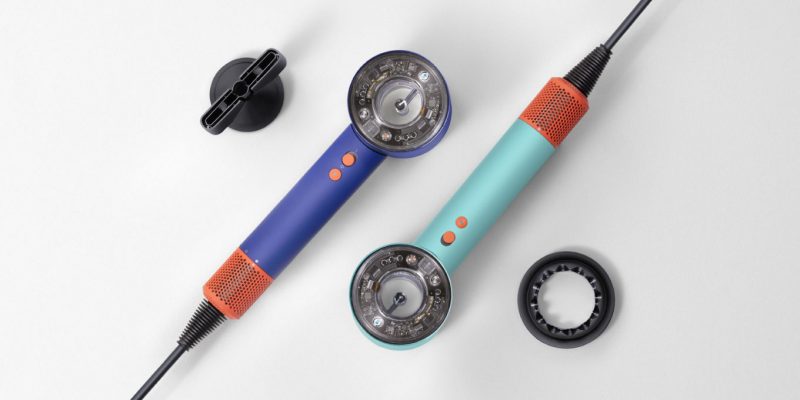
Beauty
Dyson Just Launched Its Most Intelligent Hair Dryer Yet
Get ready to upgrade your blowout game.
by : Lauren Knowles- Apr 25th, 2024
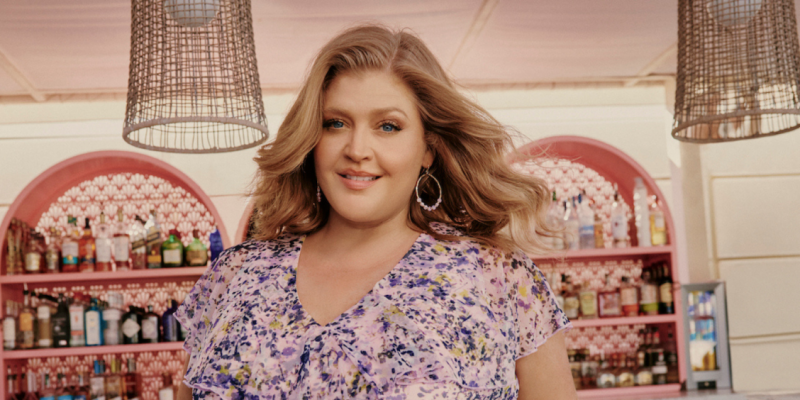
Fashion
Meredith Shaw Created a Plus-Size Summer Dress Collection That "Feels Like Candy"
The morning show host joined forces with PENN. to create a curated collection for sizes 14-32.
by : Allie Turner- Apr 25th, 2024

Culture
ELLE Escapes: Savannah
Where to go, stay, eat and drink in “the Hostess City of the South.”
by : ELLE- Apr 15th, 2024

